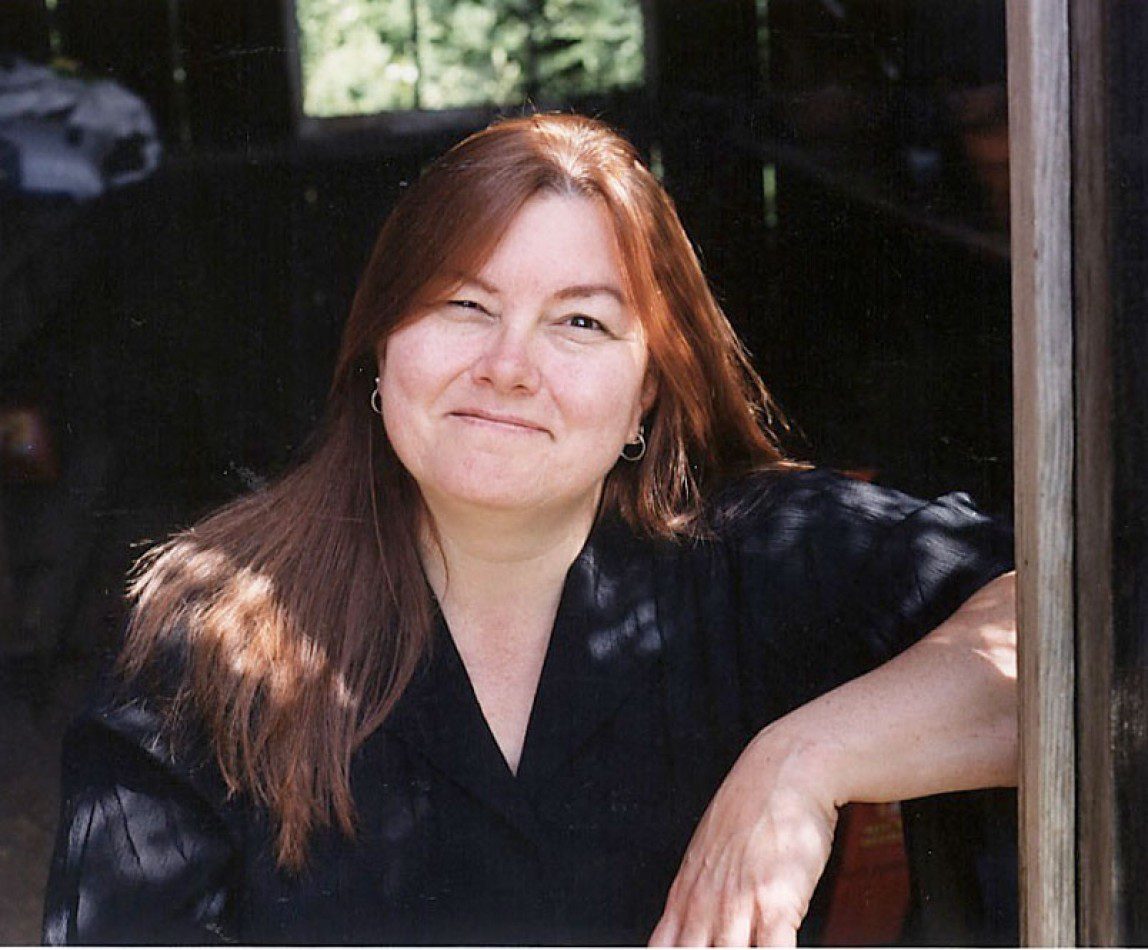The literary community mourns today the loss of Dorothy Allison—a beacon of light, grit and feminine determination. Allison’s novels Bastard Out of Carolina, Trash, Two or Three Things I Know for Sure, Skin and Cavedweller taught the world about Southern and queer identity, abuse and feminism. She was a trailblazer, known for weaving the written word into powerful lessons that proved that we are not defined by where we come from, but rather by what we are made of. Poet Julie R. Enszer leaves us with a powerful tribute to Allison, memorializing her as the groundbreaking author that she was and reminding us that strong women are capable of anything. – Haley Roberts
Dorothy Allison, Beloved Lesbian-Feminist Writer and Sex Radical
April 11, 1949-November 6, 2024
A Tribute By Julie R. Enszer
Sometimes I imagine Sappho, Virginia Woolf, Gertrude Stein, Angelina Weld Grimke, and Jeannette Howard Foster all gathered in the early 1940s. Historically, this is an impossibility of course, but it happens in my imagination. They do not all like each other; they quarrel and disagree sometimes just to be disagreeable, but one afternoon, Gertrude Stein looks up from her desk and says to them all, You know, in about thirty years, there is going to be this huge change for the lesbians—women’s liberation or some such—and they are going to be on fire with all of their ideas and organizing and writing and publishing. The others look at her with interest and a bit of amusement. She continues, Before all of this starts, I thought it might be nice to put in a few requests to the great architect of all life to make sure she gets it all right. What do we want our queer/feminist/lesbian writer kin to look like in 2000?
They all exchange various glances—incredulity, annoyance, exasperation, and more. I imagine some grumbling and various side conversations—women’s liberation? Queer? Organizing and publishing? Then, I imagine they settle into a conversation that illuminates a list of what they want to happen in the women in print movement—and what kinds of queer, feminist, and lesbian writers they want to conjure.
Let’s start with a passel of feminist and lesbian newspapers where women can write and learn how to think about writing, reporting, and finding and talking with their audience.
Let’s have some literary journals where the focus is on the writing but also on the ways of imagining communities that are multiracial and multicultural with intentionality.
Let’s have writers explore all genres – poetry, fiction, short story, essays.
Let’s have writers develop a new genre by combining the insights from their personal experiences with powerful and propulsive narratives. They can call it whatever they want, but let’s have them innovate.
Let’s have them publish their own work—and the works of their friends and fellow writers.
Let’s have them build independent publishing companies.
Let’s have them cross over into commercial publishing and get a big fat check.
Let’s have someone make a movie from one of their novels—from a novel that is so powerful and so intimate, and so crushing, and so real that everyone who reads it is kind of devastated and then everyone who sees the film things, see, see, this is what those lesbians were doing.
Let’s have someone keep writing and produce more novels.
Let’s have her teach.
Let’s have her speak and lecture.
Let’s have her inspire generations.
Let’s have her be funny and wise and self-deprecating and honest and truthful.
Then they all rest and eventually return to their lives, but that powerful imagined conversation—it lived in the world.
Sappho, Virginia Woolf, Gertrude Stein, Angelina Weld Grimke, Jeannette Howard Foster and so many other lesbian and queer foremothers conjured Dorothy Allison. They imagined a future where the early labors of the women in print movement were realized through hard work and dedication. They imagined a world where the life and work of Dorothy Allison was possible. Dorothy Allison did everything on the list above and more. Her work all happened as part of one big history of lesbians and feminists using language to find their way in the world – and to create a new world.
Now Dorothy Allison has joined the ancestors. I imagine her watching, waiting, scheming, dreaming, and conjuring what is next for lesbians, for feminists, for queers.
Julie R. Enszer is a poet and scholar. She is the editor and publisher of Sinister Women.

